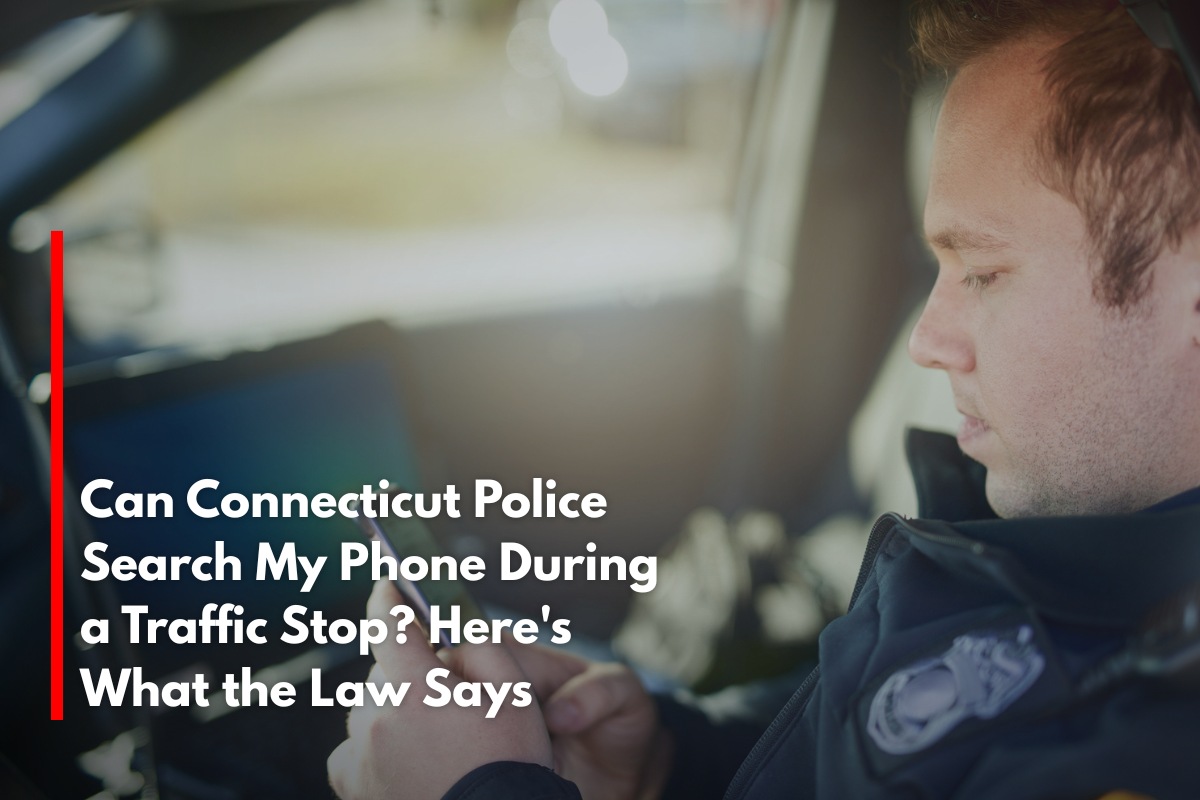During a traffic stop, many drivers wonder about the extent of police authority, especially regarding personal devices like cell phones. In Connecticut, the laws governing searches during traffic stops are influenced by both state statutes and constitutional protections, emphasizing privacy rights while balancing law enforcement needs.
Police Authority and the Fourth Amendment
The Fourth Amendment to the U.S. Constitution protects individuals against unreasonable searches and seizures. Generally, police need either a warrant or the driver’s consent to conduct a search. However, exceptions exist, particularly during lawful traffic stops where probable cause is present. Probable cause means reasonable grounds for belief that a crime has been committed or evidence of a crime is present.
Connecticut Law on Searching Vehicles and Phones
Connecticut has taken steps to tighten police authority regarding searches in recent years. As of October 2020, the state prohibits police officers from asking drivers for consent to search their vehicles during routine traffic stops. Searches can only proceed if the officer has probable cause or if the driver offers unsolicited consent.
When it comes to cell phones, Connecticut residents enjoy even stronger protections. Due to a landmark U.S. Supreme Court ruling, police must obtain a search warrant to examine the contents of a phone, even if it is seized during an arrest. This prevents officers from browsing through phones on the spot without judicial authorization.
What About Consent?
If a driver voluntarily and unsolicitedly consents to a search—meaning they offer permission without being asked—officers may conduct a search. However, police are explicitly barred from soliciting consent during a traffic stop or arrest to circumvent the warrant requirement.
Practical Impact for Drivers
This means that during a typical traffic stop in Connecticut:
Police cannot legally search your phone without a warrant.
They cannot ask you for permission to search your phone.
If you refuse consent politely, officers must respect that refusal.
Any evidence obtained from an illegal phone search may be inadmissible in court.
Distracted Driving and Phone Use in Connecticut
It’s important to note that Connecticut law also restricts the use of handheld devices while driving or stopped in traffic. Using phones without hands-free devices is illegal and can result in fines. This does not impact your right to refuse a phone search but emphasizes safety priorities during traffic stops.
What Should You Do If Police Ask to Search Your Phone?
If a police officer requests to see or search your phone, you should calmly and clearly state that you do not consent to the search. It is your right under state and federal law to refuse without facing penalty for refusal. You can also ask if you are free to leave, helping clarify the situation.
Protecting Your Privacy Rights
Connecticut laws reflect a balanced approach to privacy and law enforcement, particularly after recent reforms and court rulings. Your cell phone is highly protected under privacy laws, and police officers cannot search it unless they have obtained a search warrant or you voluntarily and unsolicitedly consent.
Understanding these rights helps drivers protect their personal information and ensure that any law enforcement actions are conducted legally and fairly during traffic stops in Connecticut. If you believe your rights have been violated, consulting a knowledgeable criminal defense attorney can provide guidance and legal support.
Staying informed about your rights is a crucial step to protecting your privacy in today’s digital age.
Sources
[1](https://portal.ct.gov/dot/ctdot-press-releases/2025/distracted-driving-awareness-month-2025)
[2](https://www.acluct.org/en/know-your-rights/know-your-rights-stopped-police-connecticut)
[3](https://www.connecticutcriminallawyerblog.com/know-your-rights-during-a-connecticut-police-stop-or-arrest/)
[4](https://portal.ct.gov/highwaysafetyoffice/traffic-safety-programs/distracted-driving)
[5](https://www.carlsondumeer.com/firm-blog/2022/january/protecting-yourself-during-traffic-stops/)











